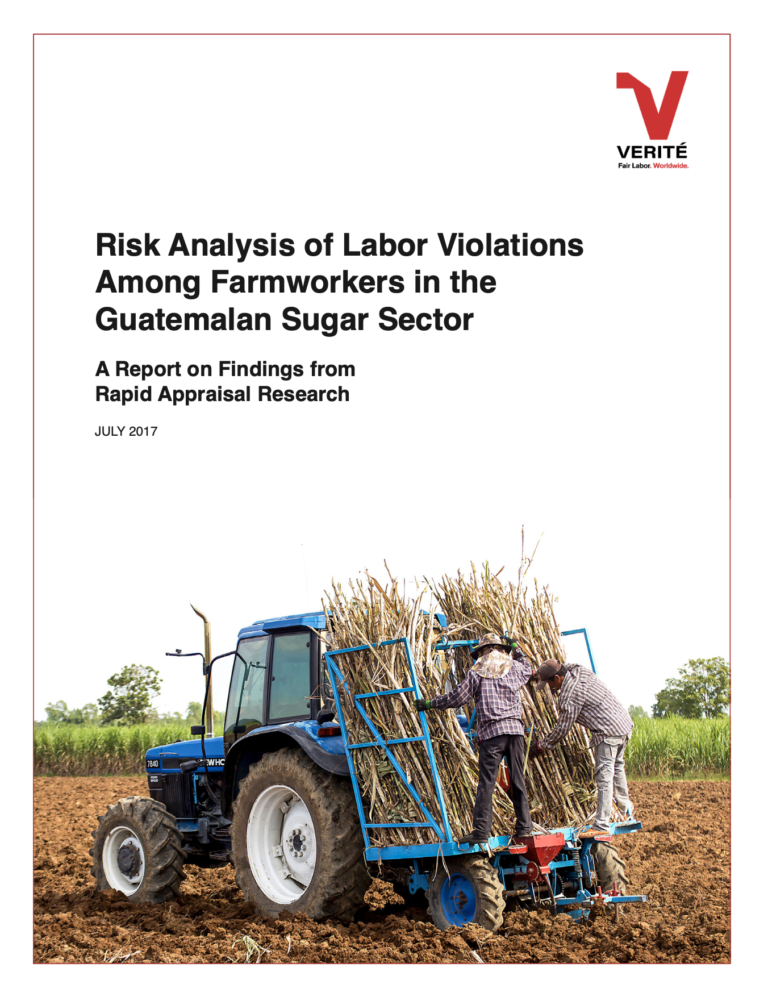Rapid appraisal research was carried out by Verité and REACH (Research-Education- Action-Change) on labour conditions in Guatemalan sugarcane production in late 2016. Researchers conducted a literature review, expert consultations, unstructured life story interviews with three workers, and in-depth survey interviews with 38 workers who performed a range of tasks on sugar plantations, including harvesting sugarcane. Verité found indicators of labour trafficking and evidence of recruitment abuses, child labour, restrictions on workers’ right to freedom of association, gender-based discrimination, wage and hour violations, threats to workers’ health and safety, inhumane living conditions, and negative impacts on communities surrounding sugar plantations. Verité has developed actionable recommendations for companies seeking to improve working conditions in the sugar sector, as well as recommendations for the Guatemalan government.

